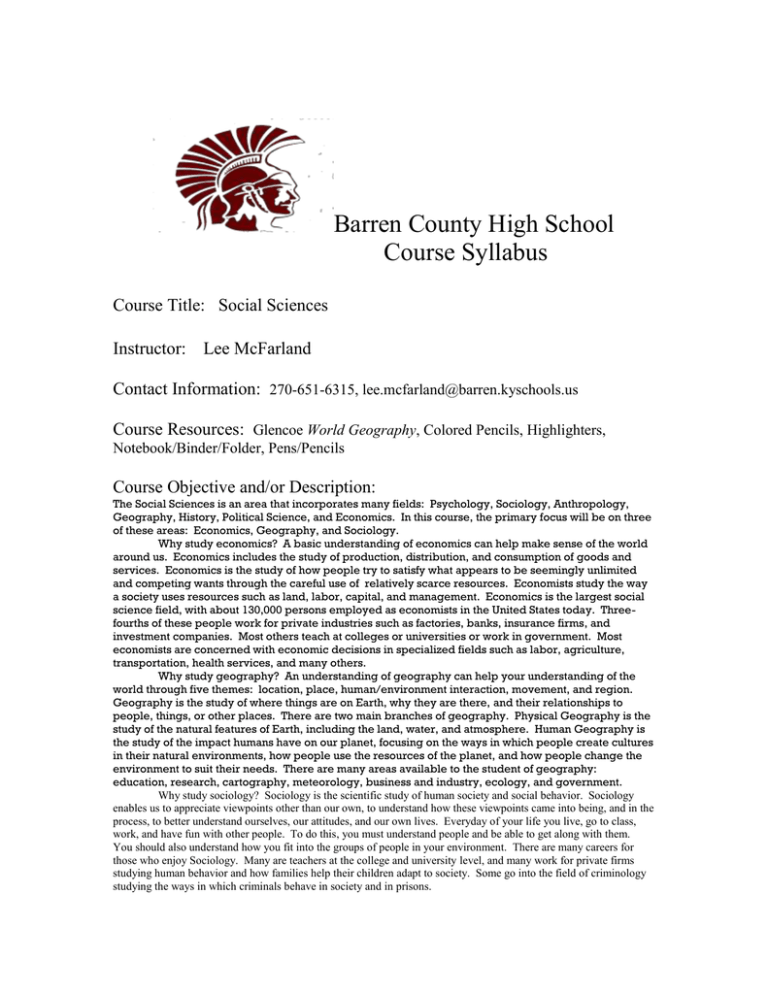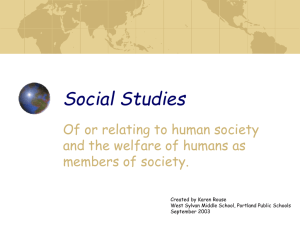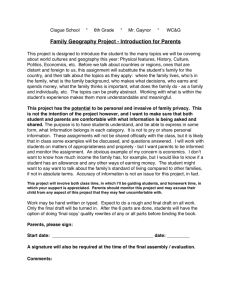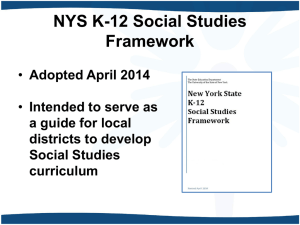Barren County High School Course Syllabus
advertisement

Barren County High School Course Syllabus Course Title: Social Sciences Instructor: Lee McFarland Contact Information: 270-651-6315, lee.mcfarland@barren.kyschools.us Course Resources: Glencoe World Geography, Colored Pencils, Highlighters, Notebook/Binder/Folder, Pens/Pencils Course Objective and/or Description: The Social Sciences is an area that incorporates many fields: Psychology, Sociology, Anthropology, Geography, History, Political Science, and Economics. In this course, the primary focus will be on three of these areas: Economics, Geography, and Sociology. Why study economics? A basic understanding of economics can help make sense of the world around us. Economics includes the study of production, distribution, and consumption of goods and services. Economics is the study of how people try to satisfy what appears to be seemingly unlimited and competing wants through the careful use of relatively scarce resources. Economists study the way a society uses resources such as land, labor, capital, and management. Economics is the largest social science field, with about 130,000 persons employed as economists in the United States today. Threefourths of these people work for private industries such as factories, banks, insurance firms, and investment companies. Most others teach at colleges or universities or work in government. Most economists are concerned with economic decisions in specialized fields such as labor, agriculture, transportation, health services, and many others. Why study geography? An understanding of geography can help your understanding of the world through five themes: location, place, human/environment interaction, movement, and region. Geography is the study of where things are on Earth, why they are there, and their relationships to people, things, or other places. There are two main branches of geography. Physical Geography is the study of the natural features of Earth, including the land, water, and atmosphere. Human Geography is the study of the impact humans have on our planet, focusing on the ways in which people create cultures in their natural environments, how people use the resources of the planet, and how people change the environment to suit their needs. There are many areas available to the student of geography: education, research, cartography, meteorology, business and industry, ecology, and government. Why study sociology? Sociology is the scientific study of human society and social behavior. Sociology enables us to appreciate viewpoints other than our own, to understand how these viewpoints came into being, and in the process, to better understand ourselves, our attitudes, and our own lives. Everyday of your life you live, go to class, work, and have fun with other people. To do this, you must understand people and be able to get along with them. You should also understand how you fit into the groups of people in your environment. There are many careers for those who enjoy Sociology. Many are teachers at the college and university level, and many work for private firms studying human behavior and how families help their children adapt to society. Some go into the field of criminology studying the ways in which criminals behave in society and in prisons. Units of Study: Social Sciences will consist of 7 units: Introduction to Geography, The Western Hemisphere, Europe and Russia, Africa and the Middle East, Asia and Australia, Economics, and Sociology There will be at least one special project each 9 week grading period that will be a substantial element of the student’s grade. Grading Policy: Student grades will be calculated on a point system: for example, each assignment will be worth a specified number of points. Attendance Policy: Students have up to five school days to make up assignments and/ or tests due to an excused absence. Work may be made up before or after school and must be scheduled with the course instructor. Semester Test Policy: Students with any unexcused absences in a course or have been assigned to ASP are required to take the semester exam which counts as part of the semester grade. Plagiarism / Academic Dishonesty Policy: Plagiarism and academic dishonesty are serious offenses. The academic work of a student is expected to be his/her own effort. Students must give the author(s) credit for any source material used. To represent ideas or interpretations taken from a source without giving credit is a flagrant act. To present a borrowed passage after having changed a few words, even if the source is cited, is also plagiarism. Students who commit any act of academic dishonesty (i.e.-students who are caught cheating on an assessment) will receive a failing grade in that portion of the course work. Acts of academic dishonesty will be reported to the administration. I have read the course syllabus for Social Sciences and I understand the expectations and requirements for this course. Parent Signature: __________________ Student Signature: __________________





